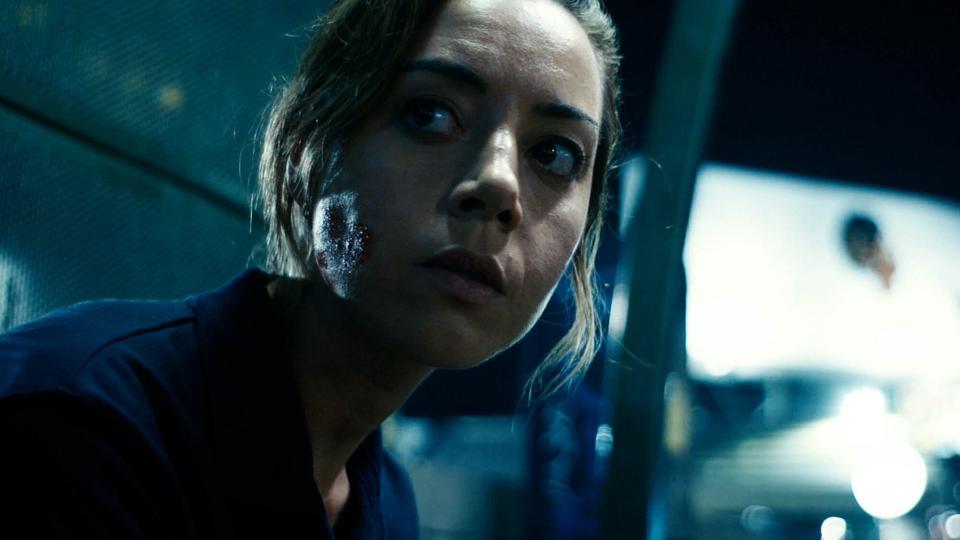Emily the Criminal review: Aubrey Plaza goes outlaw in a pitch-black comic thriller
Give a girl in a gig economy a chance: that's all Aubrey Plaza's broke protagonist in Emily the Criminal (which premiered last night at the Sundance Film Festival) is looking for. But $70,000 in college debt and half a degree from art school don't really polish up a resumé; neither does a rap sheet that includes a DUI and, as one potential employer helpfully points out in the movie's opening scene, a conviction for aggravated assault. If Nomadland was a tone poem about being poor, white, and female on the fringes of American life, Emily is more like a silent scream: a scrappy pitch-black study of just how easy it is to step into the void.
Once an aspiring painter and now a perspiring cater-waiter, Emily can barely pay off the interest on her student loans, let alone the principal. She shares her L.A. apartment with a roommate who hardly speaks to her (in fact, she doesn't seem to speak English at all) and rarely leaves the house to socialize unless it's drinks with her one college friend (Almost Family's Megalyn Echikunwoke), whose thriving ad-agency career mostly serves to remind her of how bleak her own prospects are.

Sundance Institute Aubrey Plaza in 'Emily the Criminal'
So when a coworker offers her a phone number on a scrap of paper one day, she takes it — and finds that she has a knack for what turns out to be a massive credit-card racket: Take the stolen identities a man named Yusuf (Theo Rossi) provides, buy a large appliance, flip it. When she passes the first test, Yusuf graduates her to bigger stuff and lets her start cutting her own cards. To his credit, though, writer-director John Patton Ford doesn't turn what follows into a zippy bling-ring montage; instead, he drills down on the messiness and occasional abject terror of essentially criming without a net.
Bluffing might be half the job, but when Emily goes out to buy a new car or another flat-screen with someone else's money, there's no getaway driver waiting for her on the other side; if things go wrong — as they do more than once, spectacularly — she's on her own. Her only ally is Yusuf, and soon he's more than that: Between them, they may even figure out how to find their own American dream, albeit feloniously. But can "easy" money ever really be easy? As grim as the synopsis sounds, Ford imbues his story with a tense, vibrating energy, moving briskly between the breathlessness of a heist thriller and the sharper barbs of social satire.
And he has an ideal muse in Plaza, whose slow-blinking lemur eyes and sour-candy acidity have made her a go-to for roles that require a kind of simmering, furious intelligence. (In one scene where she faces off with a womansplaining executive played by Gina Gershon, it feels for a moment like her rage might actually conduct electricity). Lank-haired and perpetually on edge, she makes Emily's tumble into the underworld believable — and more importantly, interesting. She may be a wanton criminal, but she's also a woman very much for these times: Not the anti-heroine we knew we needed, maybe, but one that we deserve. Grade: B+
Follow E.W.'s ongoing coverage out of Sundance here.
Related content:

 Yahoo Movies
Yahoo Movies 
